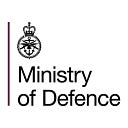From 9/11 to Nightingale: A doctor’s journey in the line of duty
On Christmas Day, Lt Col Peter Hale was carving the turkey for his family when he got a call to deploy with a crack team of military medical planners to support NHS London
Hale is used to emergency responses. At the beginning of his military career on September 11 2001 he was working in a hospital trauma centre in Washington DC when a plane hit the Pentagon. He dealt with multiple casualties in what turned out to be one of the most notorious terrorist attacks of the modern age. Since then he has worked as a GP for frontline infantry units and is now at the heart of leadership training for the Army’s Medical Corps.
The former Reading Grammar Schoolboy who is now Commanding Officer for the British Army’s 22 Field Hospital has been in Docklands working round the clock with his team since Boxing Day, helping to get the NHS Nightingale Hospital ready to receive patients at the ExCeL in London.
“It’s always exciting to be called on to help but when I first walked into the ExCeL I was struck initially by the enormity of the task, it was pretty awe inspiring, and time was against us. Thankfully as military medics it’s in our DNA to tackle tough problems, and we were blessed by having in our NHS colleagues some of the most hardworking, dedicated, passionate and professional people I have ever had the pleasure to work with.
His team of 9 military personnel has included military Doctors, Nurses, Royal Engineers and Medical Planning Officers who have worked seamlessly with the NHS team on site to successfully open a 60-bed hospital (with capacity to increase) and relieve the pressure on the medical frontline.
At the start, a military style Operations Centre was immediately established to help ready the NHS Nightingale Hospital to receive patients, relieving the pressure on hospitals elsewhere. NHS staff quickly adapted to this crisis response way of problem solving, which is second nature to the military, and have already begun replacing military staff in main leadership and operational roles.
The NHS staff would make fantastic soldiers!
Hale was so impressed at the speed with which they adapted to new ways of working that he awarded one of the NHS leadership team with a Commanding Officers Coin- normally awarded to the most outstanding soldier or officer in the unit.
“He was so competent in his role running the office for the Managing Director of the hospital that I’ve been able to send my own operations officer home, and that’s remarkable in such a short time frame”
“Reopening the ExCeL is one of the greatest things I’ve ever done in the Army. To have the honour to help our own country through the pandemic at a time of greatest need has given me and my team an infinite sense of satisfaction.
“It’s a genuine pleasure to help our partners in the NHS and I will miss the friendships and camaraderie we have build together in this process. It has been a privilege to help the NHS get the London Nightingale Hospital up and running so quickly.
“My team has used military planning methods to help the excellent NHS management get this complex and challenging hospital build ready to receive patients in just 10 days. It’s one of the most rewarding things in my career to meet that deadline and see how happy they are with what we’ve done.”
While Peter returns to wife Anna, a veterinarian, and his sons Oliver 12, and Robert 9, at their military base in Surrey, there’s no rest in sight. His unit, 22 Field Hospital, are expecting to deploy again soon.
The Unit has deployed across the world during the last year including sending personnel to support continuing operations in Iraq. They’ve also worked closely with the Royal Hospital Chelsea during the COVID-19 pandemic, assisting their veterans through a difficult time. He will continue to ensure the NHS has the support they require in other areas wherever his team can bring their specialist skills. Some of his team will remain in London to re-role assisting the vaccine task force or Combat Medical Technicians working in the most critical areas of our London Hospitals.
